Improving access to healthcare through games
See the inspiring projects of Team En#Megical and Team Makara Tech, two of this year's Imagine Cup World Finalists.
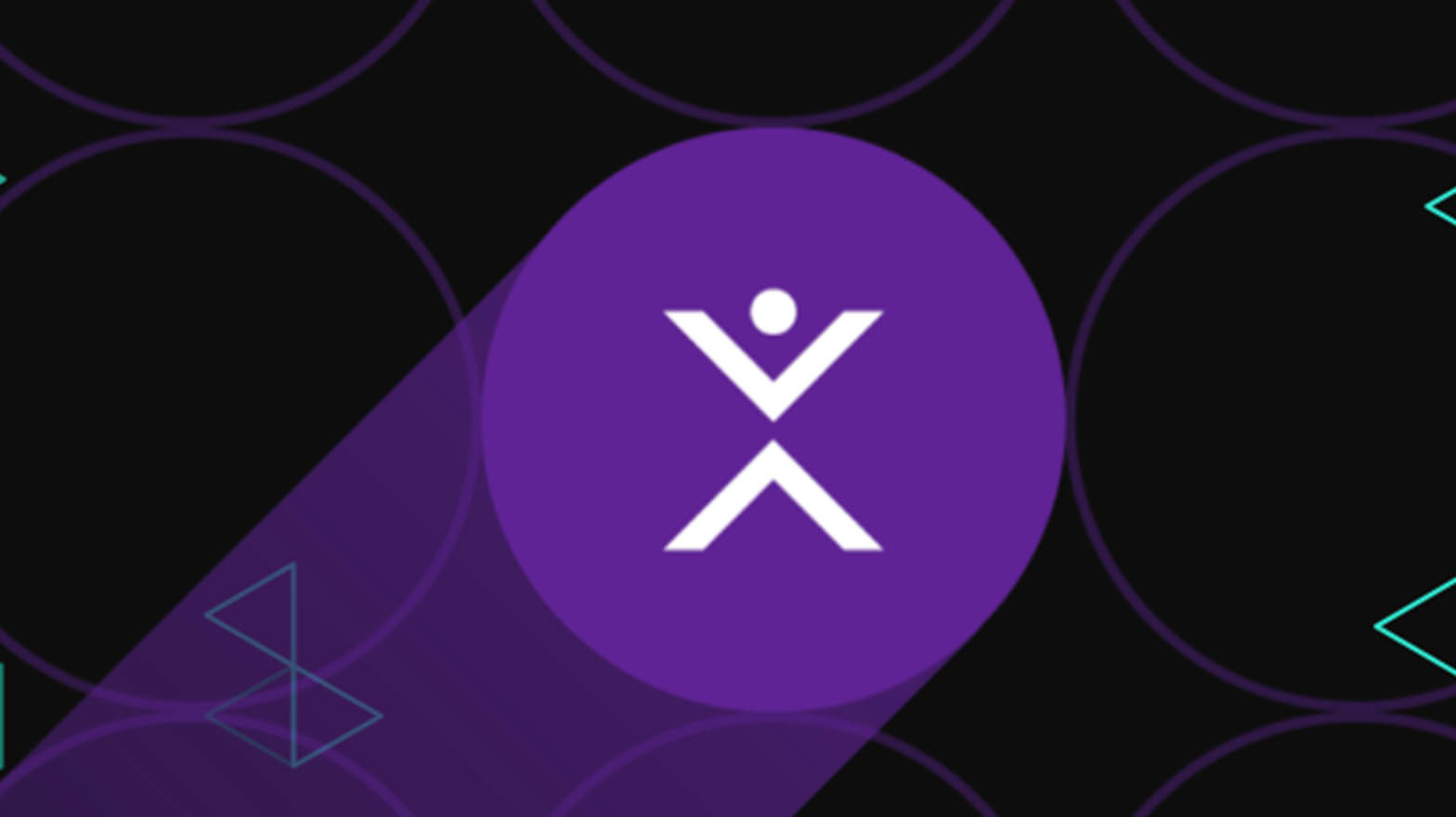
As students have attended school in new and unprecedented ways the past two years, many have found playing games a comforting way to relax, have fun, and stay connect with friends and family safely. This year, two Imagine Cup World Finalist teams decided to lean into the benefits of gaming and focused their projects on improving mental and physical health through games. Team En#Megical created a mental health app that leverages six types of games, in addition to guided meditation and other mental exercises, to help people struggling with depression. Team Makara Tech created a mobile game that guides stroke victims through rehabilitation exercises to aid with recovery.
Team En#Megical
We hope that people all over the world will have a day full of laughter because of our games."
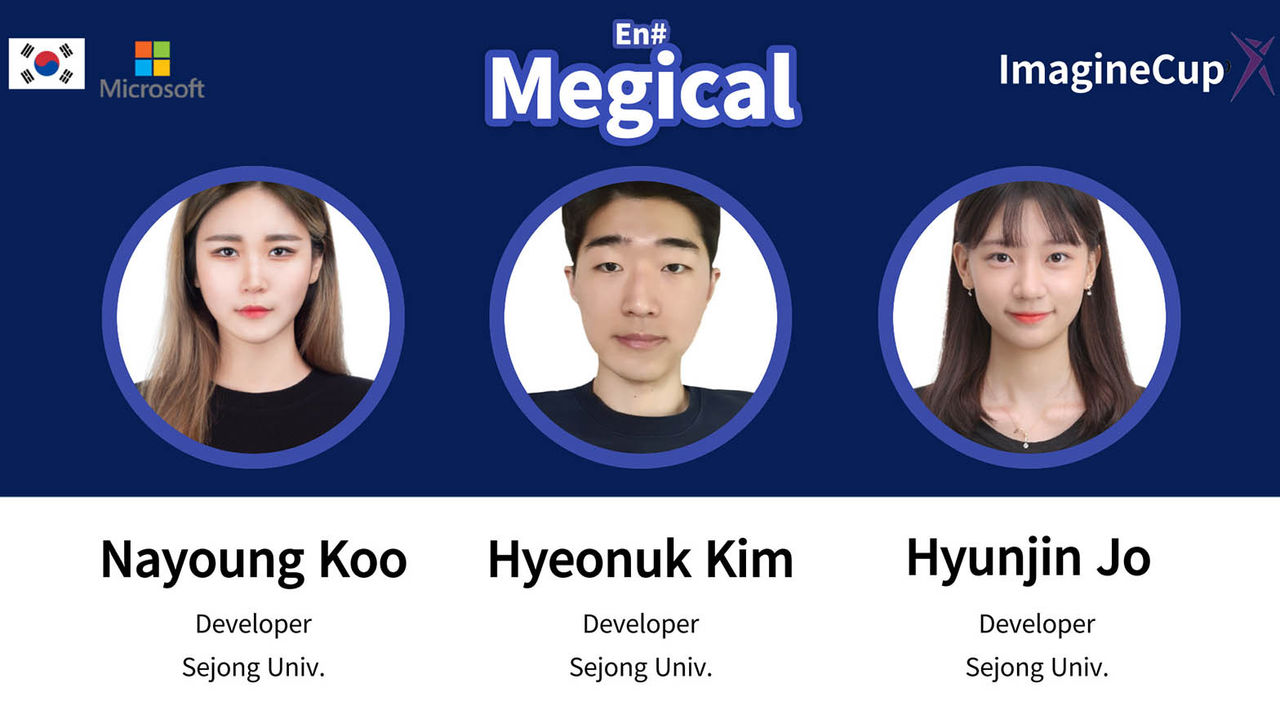
Twenty-year-old Nayoung Koo, and Hyeonuk Kim and Hyunjin Jo (both 24), met at Sejong University in Seoul, South Korea in 2021. They participated in the university's programming club, en#, which has a long history of competing in Imagine Cup. Their positive experiences with the club, and their shared desire to use technology to achieve a positive global impact, are what brought them together for this year's competition.
The Covid-19 pandemic has caused an increase in the number of South Koreans suffering from depression. In fact, there are so many new cases that South Koreans have nicknamed the phenomenon "Corona Blue." Despite an increased awareness of mental health and how Covid-19 can exacerbate conditions like depression, it is still difficult to seek treatment for mental health—as En#Megical noted, treatment for depression there often requires a hospital visit or extended stay. Not only can that be daunting, but in some cases distance and cost further inhibit people from getting the care that they need. The team set out to find a digital medical solution to these challenges.
The result of their efforts is Megical, an app that starts out by administering standardized depression questionnaires to its users. The En#Megical team uses Azure SQL Server for storing and managing the users' depression scores and uses Azure Cognitive Services to run text sentiment analysis over the users' answers to daily questions. Then, based on an individual user's results, Megical suggests cognitive behavioral therapies and emotional activation activities, such as meditation, taking a series of fun photos with your phone, or going for a walk. The developers also incorporated six types of brain stimulating games into their app (focusing on memory, spatial perception, agility, cognitive ability, interpersonal relationships, and brain movement), providing a varied set of experiences to combat Corona Blue.
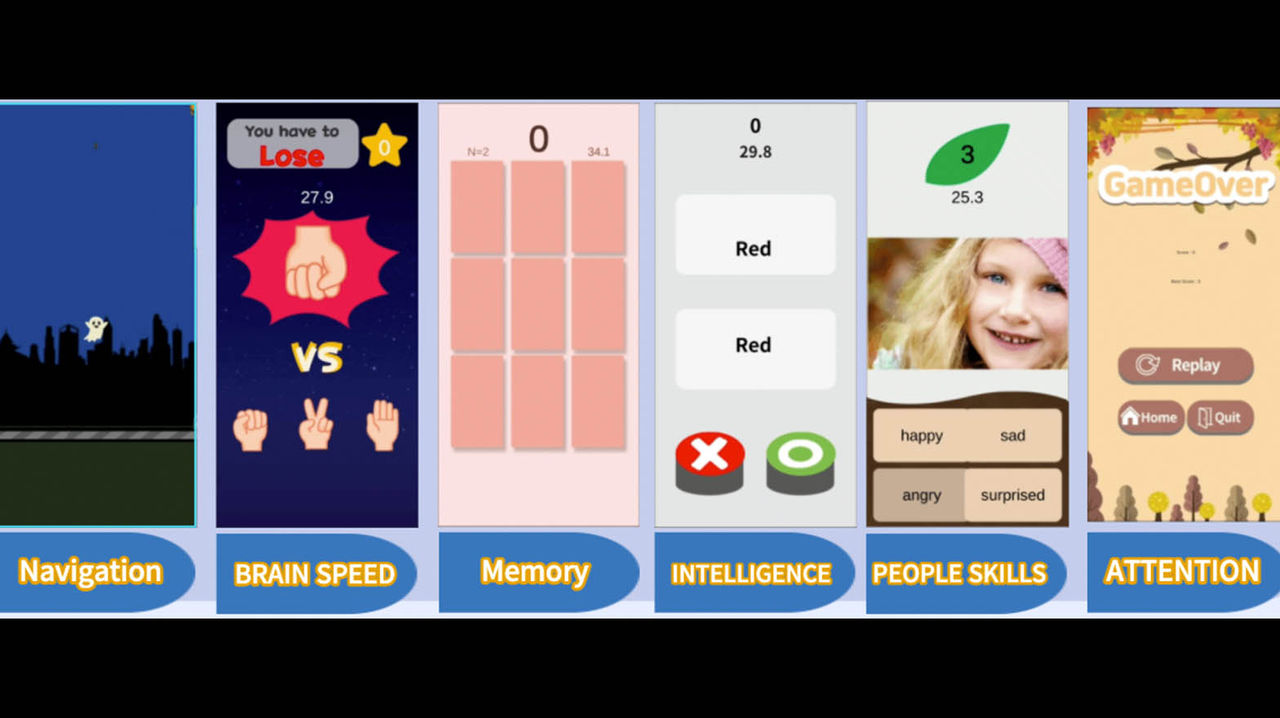
Team Makara Tech
"We want to make stroke rehabilitation fun, accessible, and affordable using games."
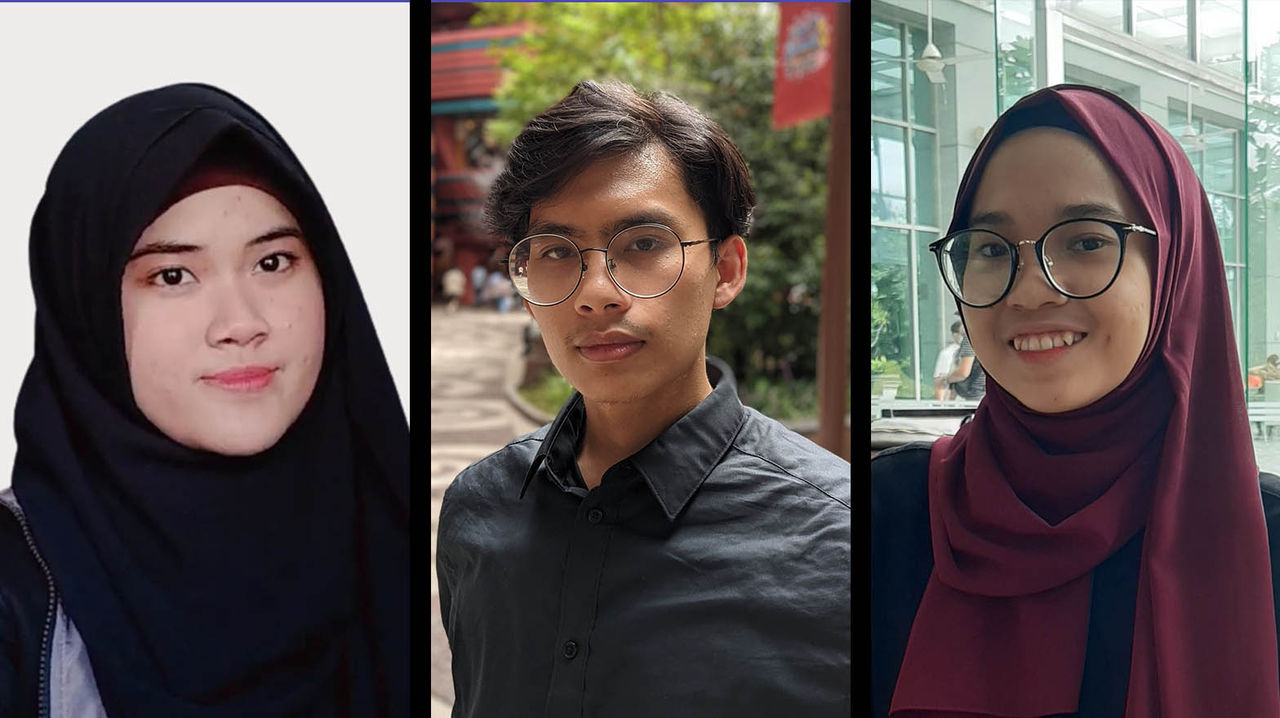
Growing up in Indonesia, 22-year-old Shafira Ayu Maharani was drawn to medicine for personal reasons. Her grandmother suffered a stroke and she saw firsthand how carefully you must care for a stroke patient. Her family started with intense rehabilitation at the hospital, but they lived far away and soon the distance and cost became too much. The gap in rehab caused setbacks in her grandmother's healing, and Shafira realized how important long-term rehabilitation is for stroke patients to make a full recovery.
Because of those formative experiences, Shafira first wanted to become a doctor. But upon discovering information systems—and how it can contextualize the application of technology for the benefit of society—she decided that this major could enable her to have an even greater impact. Shafira discussed the idea of building an e-health app for stroke rehabilitation with her classmates Zafira Binta Feliandra and Muhammad Danial Yusra, both 21 years old. They decided to combine their strengths and formed a virtual team with Shafira as the business and research lead, Zafira as the product and design lead, and Danial (who had relocated to Japan to continue his studies in 2019) as the engineering and English language lead.
When someone has a stroke the most common side effect is paralysis, often on one side of the body. The best way to recover is by doing regular physical rehabilitation, which consists of doing the same exercises each day for hours at a time. While these exercises are often not tiring, they are tedious, so keeping people motivated to continue them is important. Additional challenges include access to rehabilitation facilities, lack of affordable, nearby care, and the logistics of transporting someone who does not have full use of their body.
To overcome these obstacles, Team Makara Tech created Virtuo Stroke—a game that leverages motion capture technology from a cell phone to allow the player to navigate and play the game by moving their body. Using the Google Machine Learning Kit's pose detection, they detect a player's movements using their smart phone camera. Currently built around skiing gameplay, as players lean left and right to navigate around flags, they are doing postural control training, which helps patients regain their balance. Virtuo Stroke records all the movement data and securely stores it in Azure so that doctors can access the data, review it for stroke indicators, monitor patient progress and assign new games and exercises within the app.
Working with their mentor, Zafira's uncle who is a doctor and rehabilitation expert, Team Makara Tech was able to test their prototype in a clinic and get patient and doctor feedback. The response so far has been very positive: the medical teams are interested in technology that will make rehab easier and more fun to complete and the patients enjoy playing a game while also improving their health. Team Makara Tech has ideas for additional games, including a flying game that focuses on arm rehab and a game where you use your hands to cover leaks in an aquarium that emphasizes precise hand movements.
From the perspective of the developers, Virtuo Stroke's potential for impact will only continue to grow as they observe an anecdotal increase in the number of stories like that of Shafira's grandmother, where recovery from rehabilitation is difficult and costly. While the team is proud to have competed in Imagine Cup and see their ideas come to life, "This app has become less about Imagine Cup, and more about helping people," says Danial.
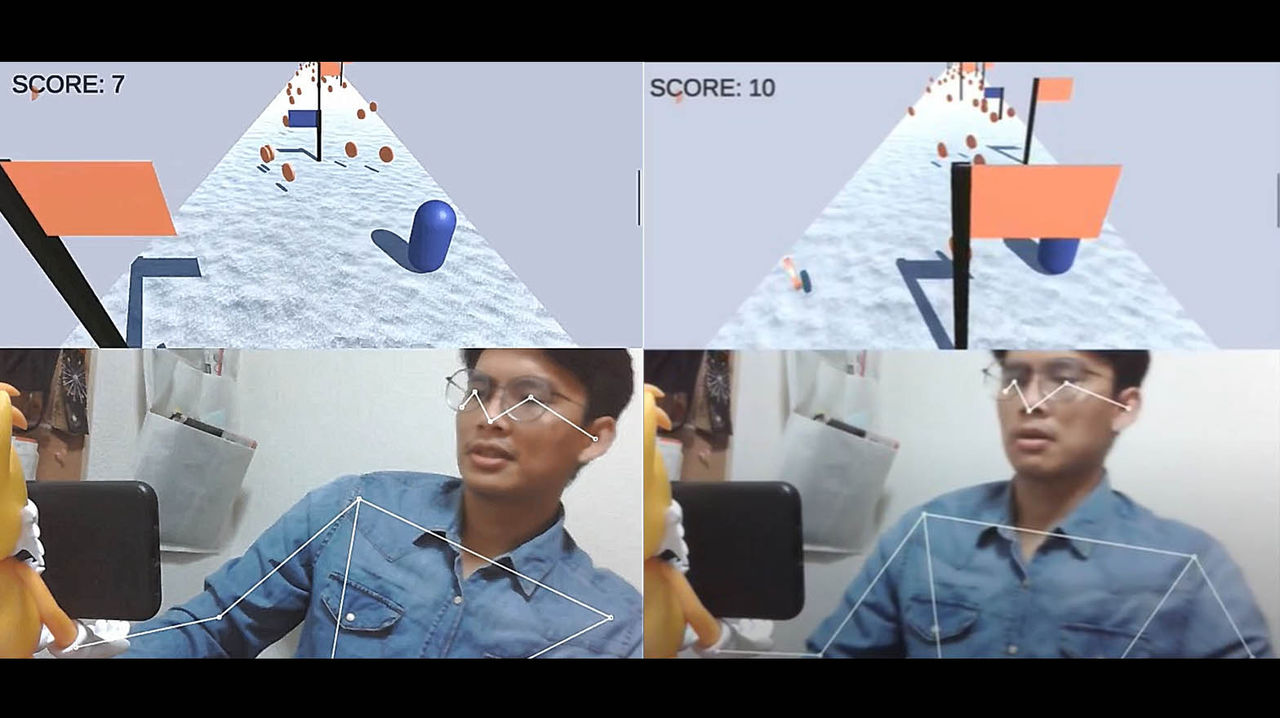
More about Imagine Cup
This year marks the 20th anniversary of the Imagine Cup, Microsoft's premier student technology and innovation competition. Students from around the world form teams to create world-changing projects in one of four competition categories: Earth, Education, Health, and Lifestyle. 48 teams were selected to continue to the World Finals, where they will pitch their ideas to expert judges, demo their tech, and engage in a question-and-answer session. Projects will be judged on their innovative use of Azure technology, accessibility and inclusion, and marketability as a business idea. The 2022 Imagine Cup World Champion will be crowned in May, with the winning team taking home the grand prize of USD 100,000 and a mentoring session with Microsoft Chairman and CEO, Satya Nadella.
We are very excited that this year there were six teams competing in the World Finals that had gaming-related projects.
More about Azure and Gaming
Accelerate your game development in the cloud with the ID@Azure program. ID@Azure empowers independent studios and start-up game developers to take full advantage of the cloud to build and grow their games. By joining the program, you get free access to developer tools and support from industry experts. Find out more at www.azure.com/ID
